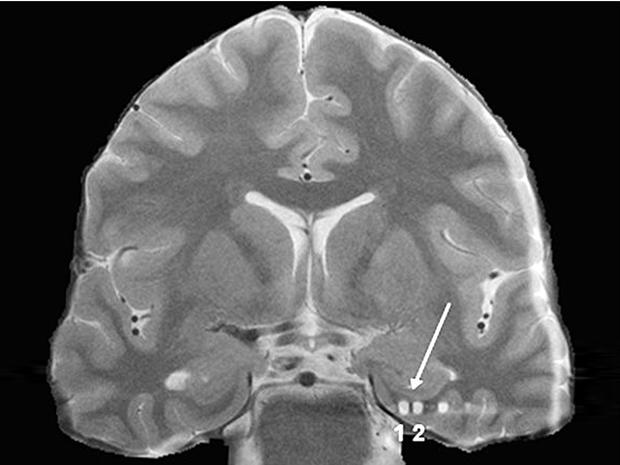Electric shocks to brain may boost memory: Study
(CBS) Ever wish you could give your memory a jolt? A new study shows it may be possible.
Alzheimer's disease: 7 things that raise your risk
The study recorded brain activity in seven epilepsy patients who had already had electrodes implanted in their brains to monitor the origin of their seizures. These patients played a video game in which they had to learn the location of stores in a virtual city. UCLA neuroscientists found that participants remembered the locations better after they received mild zaps of electricity in their brains.
Published in the Feb. 9 issue of the New England Journal of Medicine, the study could lead to a new way to boost memory in patients with early Alzheimer's disease.
How exactly does the brain zapping work?
Scientists stimulated a brain site called the entorhinal cortex, considered the doorway to the hippocampus - which helps form and store memories.
"The entorhinal cortex is the golden gate to the brain's memory mainframe," study author Dr. Itzhak Fried, professor of neurosurgery at the David Geffen School of Medicine at UCLA, said in a written statement. "Every visual and sensory experience that we eventually commit to memory funnels through that doorway to the hippocampus. Our brain cells must send signals through this hub in order to form memories that we can later consciously recall."
When the nerve fibers in the entorhinal cortex were stimulated, video game players recognized landmarks and navigated the routes more quickly, Fried said. "They even learned to take shortcuts, reflecting improved spatial memory."
Stimulation was used only during the learning phase, which suggests that patients don't need continuous stimulation to boost their memory. It's necessary only when patients are trying to learn important information, Fried said.
"Losing our ability to remember recent events and form new memories is one of the most dreaded afflictions of the human condition," Fried said. "Our preliminary results provide evidence supporting a possible mechanism for enhancing memory, particularly as people age or suffer from early dementia. At the same time, we studied a small sample of patients, so our results should be interpreted with caution."
If brain zapping works, is Alzheimer's the only condition it should treat? This research has already piqued the interest of people with normal memory function who seek a little intellectual edge, Dr. Andres Lozano, a neurosurgeon at the University of Toronto, told the LA Times. "These are major ethical issues society will have to grapple with when the time comes. This opens up a Pandora's box."
Alzheimer's disease - a form of dementia that affects memory, thinking and behavior - affects six million Americans and 30 million people worldwide. It's the sixth leading cause of death in the U.S. , and the fifth leading cause of death for those ages 65 and older.

